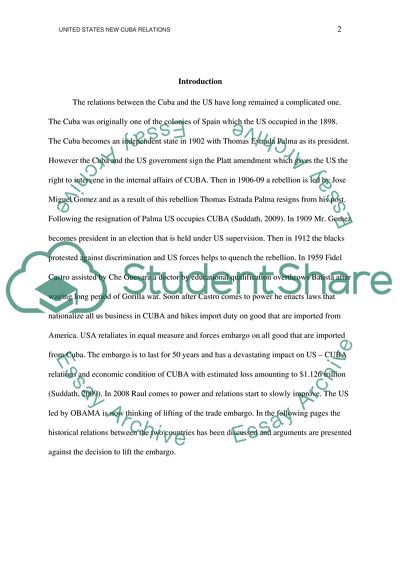Cite this document
(The Relations between the Cuba and the US Coursework Example | Topics and Well Written Essays - 2750 words, n.d.)
The Relations between the Cuba and the US Coursework Example | Topics and Well Written Essays - 2750 words. https://studentshare.org/politics/1857755-united-states-new-cuba-relations
The Relations between the Cuba and the US Coursework Example | Topics and Well Written Essays - 2750 words. https://studentshare.org/politics/1857755-united-states-new-cuba-relations
(The Relations Between the Cuba and the US Coursework Example | Topics and Well Written Essays - 2750 Words)
The Relations Between the Cuba and the US Coursework Example | Topics and Well Written Essays - 2750 Words. https://studentshare.org/politics/1857755-united-states-new-cuba-relations.
The Relations Between the Cuba and the US Coursework Example | Topics and Well Written Essays - 2750 Words. https://studentshare.org/politics/1857755-united-states-new-cuba-relations.
“The Relations Between the Cuba and the US Coursework Example | Topics and Well Written Essays - 2750 Words”. https://studentshare.org/politics/1857755-united-states-new-cuba-relations.


